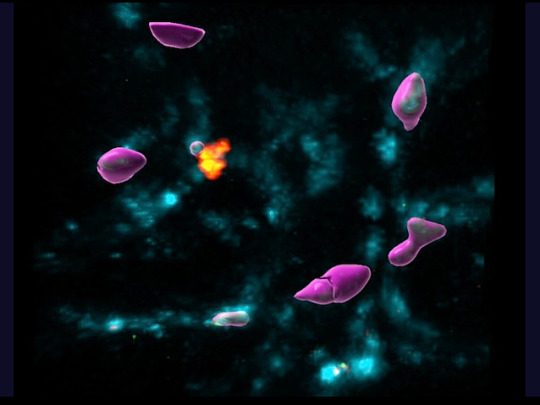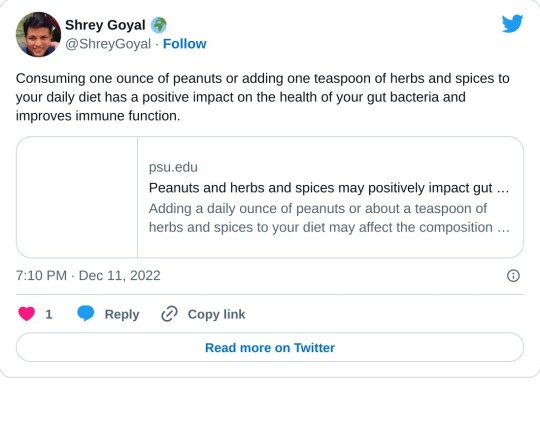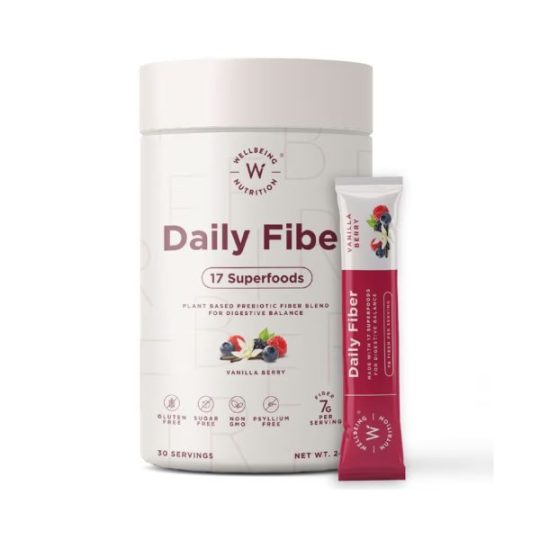#Gut Bacteria
Text
According to a new mouse study, gut bacteria may cause vision loss in certain eye diseases, which could potentially be treated with antibiotics.
Researchers from China and the UK discovered bacteria from the gut in damaged areas of the eyes of mice with mutations in the Crumbs homolog 1 (CRB1) gene, a major cause of inherited eye diseases.
Continue Reading.
91 notes
·
View notes
Text

T for Tolerant
Single cell analyses and live-imaging in mouse gut reveals mechanisms underlying tolerance of the immune system's regulatory T cells to chronic bacterial infection and the intestinal niches where this takes place. Greater understanding of the disruption of tolerance which results in colitis
Read the published research article here
Still from video from work by Yisu Gu and Raquel Bartolomé-Casado, and colleagues
Kennedy Institute of Rheumatology, NDORMS, University of Oxford, Oxford and Wellcome Sanger Institute, Wellcome Genome Campus, Hinxton, Cambridge, UK
Video originally published with a Creative Commons Attribution 4.0 International (CC BY 4.0)
Published in Nature, April 2024
You can also follow BPoD on Instagram, Twitter and Facebook
#science#biomedicine#immunofluorescence#biology#immunity#immune response#colitis#inflammation#gut bacteria#microbiome
11 notes
·
View notes
Link
Scientists from BGI-Research developed a new version of the Cultivated Genome Reference (CGR), a repository of high-quality draft genomes of the human gut microbiome. The current version of CGR, which is CGR2, has been further expanded to incorporate numerous high-quality draft genomes generated from cultivated bacteria. CGR2 classifies previously unidentified species and uncovers the functional and genomic diversity of bacterial strains. An in-depth analysis of carbohydrate-active enzymes (CAzymes) reveals the phyla with the largest and most diverse repertoires of these enzymes. CGR2 also enabled the identification of genes involved in the synthesis of secondary metabolites in the gut microbiome. The unraveling of the gut microbiome genomic landscape will enable the development of therapeutics and provide a deep insight into the evolution of the human gut microbiome.
Continue Reading
70 notes
·
View notes
Text
Cheap Daily Supplement Seems to Boost Brain Function in Older Adults : ScienceAlert
3 notes
·
View notes
Text
Obelisks is not a virus but a chain of RNA that appears in the gut whose RNA is approximately 1,000 nucleotides. Obelisks create Obelin proteins different types of protein called viroids in virus.
Abstract
Here, we describe the “Obelisks,” a previously unrecognised class of viroid-like elements that we first identified in human gut
2 notes
·
View notes
Text
Red meat contains choline and L-carnitine, which are metabolised by our gut microbes into a compound called TMA, which our liver then converts to TMAO.
"Soil: The incredible story of what keeps the earth, and us, healthy" - Matthew Evans
#book quote#soil#matthew evans#nonfiction#red meat#choline#l carnitine#metabolism#microbes#gut bacteria#tma#liver#conversion#tmao
2 notes
·
View notes
Link
Source
Myalgic encephalomyelitis/chronic fatigue syndrome (ME/CFS) is a debilitating disease with an unclear etiology and pathogenesis. Both an involvement of the immune system and gut microbiota dysbiosis have been implicated in its pathophysiology. However, potential interactions between adaptive immune responses and the microbiota in ME/CFS have been incompletely characterized. Here, we profiled antibody responses of patients with severe ME/CFS and healthy controls against microbiota and viral antigens represented as a phage-displayed 244,000 variant library. Patients with severe ME/CFS exhibited distinct serum antibody epitope repertoires against flagellins of Lachnospiraceae bacteria. Training machine learning algorithms on this antibody-binding data demonstrated that immune responses against gut microbiota represent a unique layer of information beyond standard blood tests, providing improved molecular diagnostics for ME/CFS. Together, our results point toward an involvement of the microbiota-immune axis in ME/CFS and lay the foundation for comparative studies with inflammatory bowel diseases and illnesses characterized by long-term fatigue symptoms, including post–COVID-19 syndrome.
2 notes
·
View notes
Text

View on Twitter
Consuming one ounce of peanuts or adding one teaspoon of herbs and spices to your daily diet has a positive impact on the health of your gut bacteria and improves immune function.
(Source)
3 notes
·
View notes
Link
2 notes
·
View notes
Text
Gut Microbiome Changes May Explain Chronic Fatigue Syndrome Affecting Millions
#gut bacteria#gut microbiome#long covid#so much of health is related to the gut#literally you are what you eat
1 note
·
View note
Text
There was a fat activist on TikTok- I don't remember who smugly, laughingly, derided "The Thins", saying you can't trust people whose brains are addled by the effects of anorexia, because anyone who in any way monitors their food intake and/or exercise in the slightest degree is automatically anorexic, the real irony of which is that by regularly gorging on junk food, the majority of the stars of TikTok have thrown their gut bacteria out of whack and are the ones truly living under the delusion of addiction.
Studies are starting to reveal the magnitude to which gut bacteria influences neurological processes, including behavior. Which isn't to wholly excuse the hedonist; food addiction is as valid an addiction as drug addiction and deserves to be taken AS seriously, which in my opinion, should extend to social media and considerate censorship on the encouragement of binging and discussion of methods, a prime example of such being popular HAES talking points such as "there's no such thing as junk food", "eat until you're full", the set point lie, and discouraging people from pursuing any form of pursuit of health. Replace the food with alcohol or heroin and see how acceptable it sounds now.
#this wasnt supposed to be this long oops#haes#FatTok#tiktok#gut bacteria#health#healthphobia#mind over matter#pro recovery
4 notes
·
View notes
Text
5 Methods for mending Stomac Wellbeing Normally:

Stomach wellbeing alludes to the soundness of the gastrointestinal system, or stomach, the organ that summaries and ingests supplements from food to give fuel to your body. Yet, your intestinal system accomplishes such a great deal more. It likewise assumes an imperative part in keeping up with mental and actual wellbeing. That is the reason you believe your stomach should flourish and thrive. Most specialists accept stomach wellbeing is necessary to in general wellbeing, explicitly regarding illness avoidance.
more info click here
#stomach problems#empty stomach#big stomach#stomach growling#Stomac Wellbeing#gut health#gut feeling#gut bacteria#gut spill#gut microbiome#digestive
4 notes
·
View notes
Text
My Gut Feeling Was Right: A Review of Probiotic Support Supplements
I've always considered myself fairly healthy, but in recent months, I'd been plagued by persistent bloating and occasional digestive discomfort. It wasn't debilitating, but it was certainly annoying and disruptive to my daily routine. I tried making some dietary changes, but the issue persisted. That's when I decided to delve into the world of probiotics.

Taking a Stand for My Gut Health
After some research, I opted for Probiotic Support Supplements. The product appealed to me for a few reasons. Firstly, it contained a diverse blend of probiotic strains, which I felt would be more effective than a single-strain formula. Secondly, the dosage seemed appropriate for my needs, and the reviews I read were overwhelmingly positive.
A noticeable Difference in Digestive Comfort
Within a few weeks of taking Probiotic Support Supplements daily, I began to notice a significant improvement in my digestion. The bloating subsided considerably, and the occasional discomfort became a rare occurrence. I felt lighter and more comfortable throughout the day. This positive impact on my gut health was a welcome relief, and it motivated me to continue taking the supplements.
Beyond Digestion: A Well-being Boost
But the benefits seemed to extend beyond just my digestive system. I noticed an overall increase in my energy levels. I felt more focussed and less sluggish throughout the day. While I can't definitively say it was solely due to the probiotics, I believe they played a role in enhancing my overall well-being.
Maintaining a Healthy Microbiome
Since then, Probiotic Support Supplements have become a staple in my daily routine. I'm a firm believer in the importance of maintaining a healthy gut microbiome, and these supplements seem to be doing the trick. They're easy to take, haven't caused any side effects, and have demonstrably improved my gut health and overall well-being.
In Conclusion:
If you're experiencing digestive issues or simply want to support your gut health, I highly recommend giving Probiotic Support Supplements a try. While individual results may vary, my experience has been overwhelmingly positive. With a diverse blend of strains, a convenient dosage, and a focus on overall well-being, Probiotic Support Supplements have become an essential part of my health regimen.
#dieting#diet#health and wellness#weight loss diet#gut health support#gut bacteria#detox#General health#health & fitness
1 note
·
View note
Text
Understanding The Microbiota-Gut-Brain Axis
The microbiota-gut-brain axis is a fascinating and intricate system that plays a pivotal role in maintaining overall well-being and regulating various functions in our bodies. It involves communication between the gut and the brain, and has recently gained significant attention in the field of health and wellness. In this article, we will delve into the intricacies of the microbiota-gut-brain axis and explore its impact on gut health and brain function.
Read The Full Article 👇👇
1 note
·
View note
Text

Wellbeing nutrition Daily fiber powder aids in weight management and promotes good digestion. It supports the elimination of toxins and nourishes gut bacteria. It helps relieve occasional constipation and reduces bloating. It enhances immune health and manages blood sugar levels.
0 notes
Text
Study shows artificial sweetener could damage gut microbiome
Study shows artificial sweetener could damage gut microbiome #neotame #study #sweetener #artificialsweetener #sugar #microbiome #guthealth #health
A new study in Frontiers in Nutrition indicates that artificial sweetener neotame may negatively regulate the intestinal epithelium directly through T1R3-signaling and indirectly through pathogenic changes to model gut bacteria. While recent studies have indicated considerable health risks associated with the consumption of artificial sweeteners, there hasn’t been as much study on neotame, which…

View On WordPress
0 notes